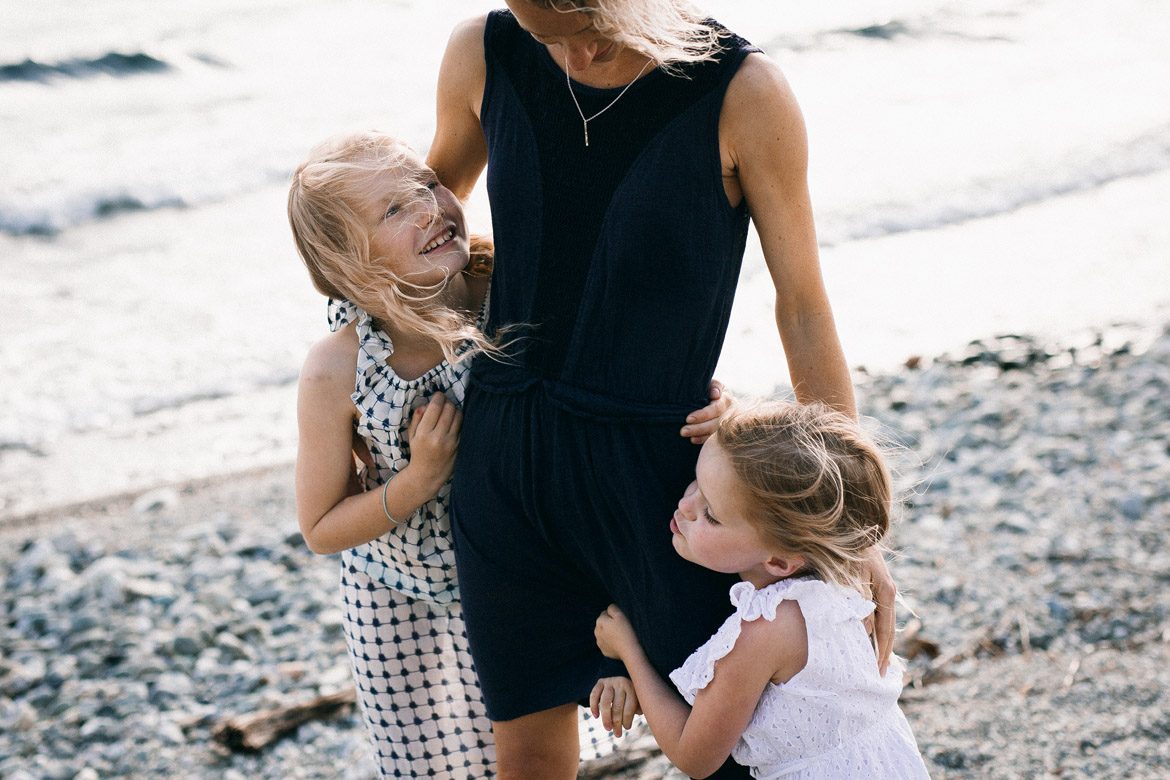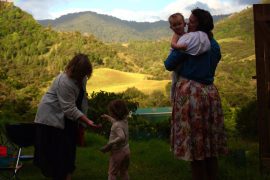By Ellen Rowland
“Shadows of the past churn and turn towards the light asking us to pay attention to unexpected feelings of ambivalence, comparison, and inadequacy in parenting. Unearthing, and addressing these feelings when they arise unwinds shame and is an essential key to healing our transgenerational attachment legacies.”
– Dr. Arielle Schwartz
I was not always a gentle parent. Although I believed I was doing what was best for my children, my early days as a mother were a tug of war. I loved my children with all my heart, but my notions of parenting were based on what I knew. Transgenerational parenting, in short, means we parent the way we were parented. And in doing so, we often pass down complex ancestral emotional wounds. We all face the same challenge when we stand before the child-rearing fork in the road. We either follow the well-worn path of legacy or we veer off in a completely different direction, vowing to change a pattern that no longer serves us or our children. But the stronghold of that generational biologism is very difficult to break. It requires a certain level of consciousness and the willingness to ask ourselves some important and sometimes painful questions. Above all, it takes a great deal of courage.
Transgenerational parenting, in short, means we parent the way we were parented. And in doing so, we often pass down complex ancestral emotional wounds.
When my son and daughter were toddlers, I believed with strong conviction that the best way to guide them was through rigid scheduling and correcting “bad” behavior. Which meant lots of yelling, time outs, talking tos, threats and even spankings. Because, isn’t exerting control how children learn to behave, to obey and to conform? Isn’t that how we instill the notion of right and wrong? Isn’t that how we ultimately protect them? I wasn’t their friend after all, I was their mother. How many times had I been told that?
The results were detrimental. Most of my arbitrary attempts to control their behavior without trying to understand the emotions behind it was hurtful and confusing for my children and made them resentful. That resentment was either internalized in the form of withdrawal or externalized in the form of acting out, neither of which was the desired outcome. And it quickly became a pattern.
My personal interior tug of war was that I often felt rejected and disrespected. And I constantly felt guilty. And when I felt guilty, I would tap into the little girl in me that remembered just wanting to be loved and try to offer that affection to my children. But without an explanation, exchange, apology, or any real change in my behavior, my children soon learned to mistrust the 360° attempt to sooth away the damage. They would accept my hugs and I love yous, but they were left with the disappointment and menacing presence of unresolved feelings.
I was deeply at odds with myself because I didn’t know another way, but I didn’t like myself as a parent. My husband, on the other hand, was a model of patience and a first rate problem-solver who often intervened when I was overwhelmed. I admired him greatly as a father and wanted so much to be more like him. At the same time, I struggled with the resentment I felt at the bond he had with our children, which in turn fed my self-doubt as a parent. Some fundamental understanding of my relationship with my children was missing.
One day, when my patience was extremely low, my voice got loud. Really loud. It boomed and raged and reflected in my children’s frightened eyes. I recognized that voice – the tone, the intonation, the tenor – as that of my father’s, someone I had loved and feared with equal measure. That voice, on good days, could lift me up with praise and laughter and on bad days and without warning, could plummet me into despair with criticism and disdain-well into my adult years.
Before my father passed away from a long battle with cancer, I took the risk and asked him some hard questions. How was it possible that former employees, friends, colleagues and strangers described him as nurturing, loving, a great listener, kind and patient, when I knew a whole other side to him that was harsh, critical, rejecting and punishing? Was he even aware of how much he’d hurt me over the years? Did he care? Did he love me?
See next page for the rest…











